HS2 contracts worth £6.6bn awarded
High-speed rail link plans announced - and troubled constructor Carillion will benefit
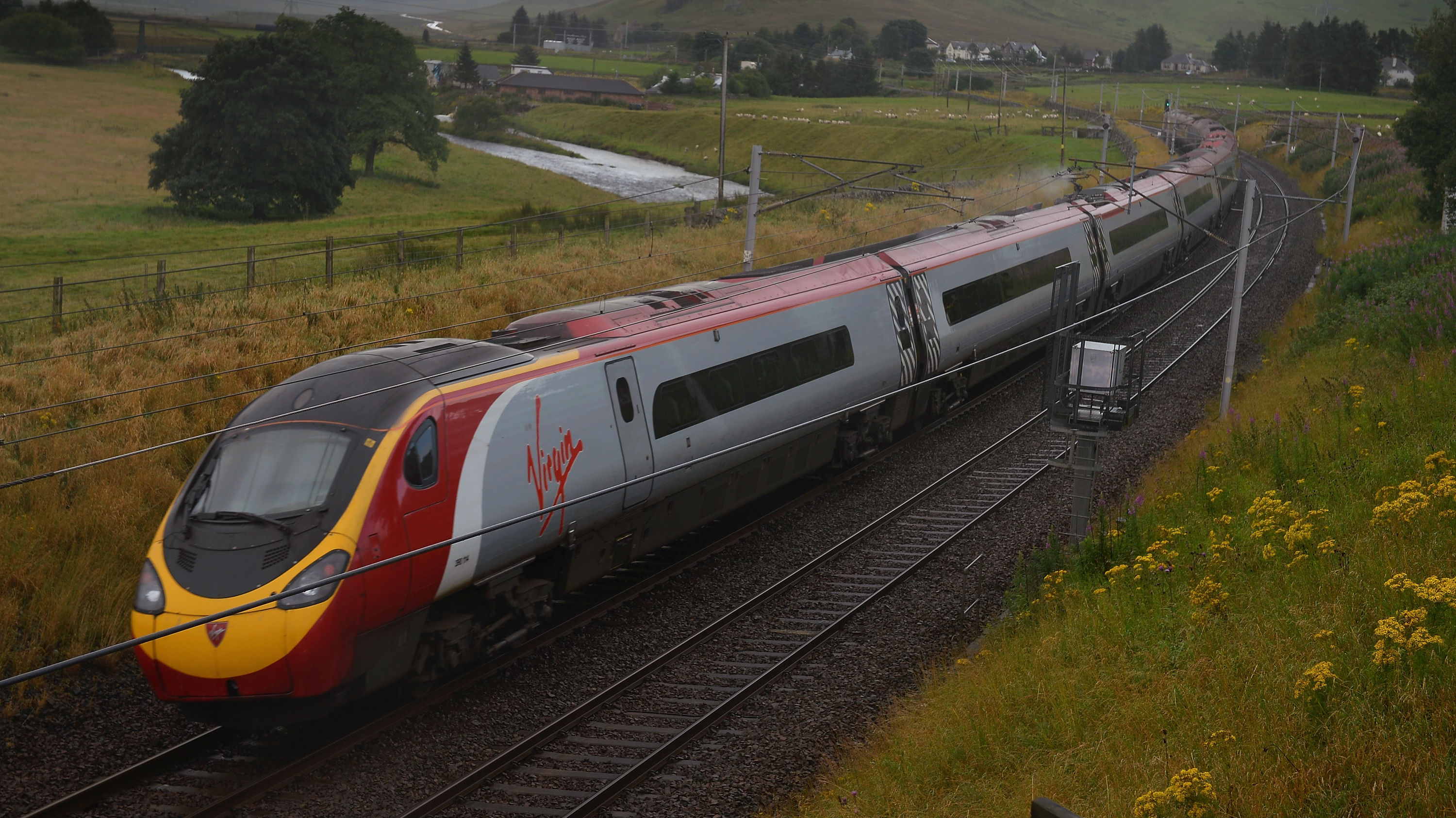
A free daily email with the biggest news stories of the day – and the best features from TheWeek.com
You are now subscribed
Your newsletter sign-up was successful
West Coast franchise winner to be handed HS2 deal
25 October
A contract to operate the first leg of the UK second high-speed rail line, HS2, will be offered to whoever wins the next West Coast main line franchise, reports The Times.
According to sources at the Department for Transport the "current thinking" is to avoid the "lines competing with each other initially".
The Week
Escape your echo chamber. Get the facts behind the news, plus analysis from multiple perspectives.

Sign up for The Week's Free Newsletters
From our morning news briefing to a weekly Good News Newsletter, get the best of The Week delivered directly to your inbox.
From our morning news briefing to a weekly Good News Newsletter, get the best of The Week delivered directly to your inbox.
"Officials believe that a few years of HS2 being run jointly with the West Coast line will provide accurate data on demand, allowing better decisions on how to operate HS2 in the future," the Times adds.
The London to Glasgow West Coast line is expected to be put out for refranchising next month, with the new contract kicking in from 2018.
Whichever operator wins the bid will be offered the chance to run the first leg of HS2 to Birmingham from 2026. The lines may be opened up again to competitive bids when the West Coast route comes up for renewal in 2028.
Ultimately "a future HS2 franchise could look fundamentally different to current arrangements", the sources add.
A free daily email with the biggest news stories of the day – and the best features from TheWeek.com
Rail industry figures are calling for the franchise operator to be responsible for infrastructure and rolling stock, rather than just the latter as is the case now.
Currently the West Coast line is run by Virgin Trains, a joint venture between Virgin and Stagecoach, and the two partners will "lead the bidding" again this time.
But Virgin Trains could "encounter opposition in Whitehall" amid fears of an effective monopoly on long-haul services out of London (Virgin Trains runs both the West and East coast routes, while Stagecoach runs the Midland main line from St Pancras).
Others bidders could include FirstGroup, which initially won the West Coast franchise in 2012 only to have it controversially taken away.
France's SNCF, through its Eurostar subsidiary, Deutsche Bahn, and through its Arriva arm, the Dutch group Abellio, as well as the national train companies of Spain, Italy, Japan and China, are also likely to submit bids for the franchise.
HS2 '£7bn over budget and set for more delays'
14 September
One of the UK's largest infrastructure projects in decades is running as much as £7bn over budget and is likely to be subject to another delay of at least a year, according to a report from MPs.
The Public Accounts Committee (PAC) has published its latest report into the £56bn High Speed 2 project that will run from London to cities in the north of England, which the BBC says acknowledges "considerable progress" since a first report three years ago.
But while the first leg of the route has been fully and formally agreed, the committee said parliament and the public were "still in the dark" on key issues of the second leg linking Manchester and Leeds.
It said that the route for this part of the line was still up in the air after publication of details was delayed in both 2014 and 2015.
The report also described costs on the £28.5bn second phase as "volatile" and likely to run over by £7bn or more. Cost savings of as much as £9bn have apparently been identified, but it is not clear whether these can be delivered without compromising the benefits of the project.
Even the first leg of the development may not open as planned in December 2026. There needs to be a "realistic" review of deadlines, the PAC said.
A government spokesperson said the project was "on time and on budget".
"We are keeping a tough grip on costs, and pressing ahead with plans for Phase Two – with further details due to be announced this autumn," the spokesperson for the Department for Transport added.
HS2 branded 'abysmal value for money'
20 November
The £42.6bn cost of the HS2 rail project represents "abysmal value for money" and is ten times the comparable cost of high-speed rail in Europe, according to a report in the Daily Telegraph.
The UK is an expensive place to lay down new railways due to high labour costs and complex planning laws, but campaigners say that at £78.5m per kilometre the controversial project to connect London with Birmingham, Manchester and Leeds is too costly to justify. The figure eclipses the £51.3m per kilometre paid for the HS1 route that links London to the South East coast.
The Telegraph points to a cost-per-kilometre in the EU of between £6.6m in Spain and £43.3m in Italy – and as low as £4.9m in Turkey. The sums vary widely due to "differences in geography, labour cost and land prices", but the average cost across nine countries that all have more high-speed rail than the UK is significantly lower at £17.9m.
HS2 spokesperson Ben Ruse said the UK was an expensive place to build high-speed railways due in part to Britain being behind the curve in terms of technology and design. In addition to the high cost of development, there are also practical aspects such as the UK's denser population, which brings extra costs related to a greater need for tunnels and large numbers of stations.
"Europe has had high speed rail for decades and the continental network now measures over 7,000km," said Ruse. "In the UK, we have had around 100km of high speed rail for less than 10 years. The development of new design and construction techniques being used on the continent may be applicable here to see if we can build high speed rail projects faster and cheaper."
That is unlikely to quell the criticism of the current cost of the project, especially at a time when much-needed infrastructure elsewhere on the rail network is under threat.
A report today from the Public Accounts Committee of MPs warns of "staggering and unacceptable" cost increases and delays to the £38bn of projects being managed by Network Rail. The Guardian says it blames the problems on the government and industry agreeing "to pay for work that could never have been delivered in time and on budget".
HS2: George Osborne opens bidding in China
24 September
George Osborne is to open the bidding today for £11.8bn of contracts to build the HS2 high-speed rail line.
The chancellor is keen to win Asian investment in HS2 as he concludes a controversial five-day tour of China, says the Financial Times. He hopes his overtures to the Far East's biggest investors will lead to a significant chunk of the HS2 project being paid bankrolled from China.
Although legislation for construction of the first stage of the rail project has yet to receive royal assent, the Chancellor is keen to get financing in place. He will say today that he hopes soon to get a "green light" to restart electrification of the Manchester–Leeds line.
Osborne told Sky News: "What we are announcing today is a major milestone in the delivery of High Speed Two, opening up the bidding for more than £11bn worth of contracts to build the track so that construction can start in just two years' time."
Critics have raised objections yo his tour of China, drawing attention to the country's human rights record. But the Chancellor, who has been accused of kowtowing to Beijing, insists that the fruits of his efforts will become clear when president Xi Jinping makes a state visit to the UK next month.
Osborne is also facing pressure from opponents of the HS2 project, who are criticising him for kick-starting contract bids "before the HS2 plans get passed by parliament".
The government hopes the contentious project will eventually carry passengers from London to Birmingham, Manchester, the east Midlands and Leeds at speeds of up to 250mph. About £50bn of taxpayers' money is being invested in the project.
HS2: full steam ahead for new high-speed rail line
3 June
HS2 is a pointless, expensive mistake, debate about which was strangely absent from the election, with all three main parties in favour of the plan to build a new high-speed rail line – according to a recent editorial in the Financial Times.
But The Times reported earlier this week that the prospect of serious political opposition has all but evaporated after the election, in which all the constituencies along the proposed route returned pro-HS2 MPs.
"With key seats shared between the Conservative and Labour parties, both of which support the plan being developed by HS2 Ltd, 'big anxieties' in Whitehall have receded and the appointment of main contractors is going ahead," says the paper.
And yesterday the Transport Secretary Patrick McLoughlin said that construction work will begin on the project within two years.
In a bullish speech, his first since the election, he said the Conservative victory was a "massive vote of confidence" in HS2.
"The argument has been won,” he told an audience in Leeds. THS2 will be built; the full 'Y' network, from London to Birmingham and Birmingham to Manchester and Leeds, with construction starting in just two years. HS2 will change the transport architecture of the north. But it will also change the economic architecture."
The high-speed service, which will eventually extend into Scotland, has attracted criticism from economists and environmental campaigners alike. During the election campaign, says the FT, "it was left to Ukip and the Greens (who generally love railways) to point out that HS2 is a grotesque waste of taxpayer's money".
The first stage of the new line – London to Birmingham – is planned to rip through part of the Conservatives' home counties heartlands. Cameron and Osborne have stuck their necks out to back it, and retreat now would be embarrassing.
Even so, there remains opposition in government. Jim O'Neill, a former chief economist at Goldman Sachs recently appointed to the Treasury, is an avowed HS2 sceptic who has described the project as a "nice luxury".
Working for Osborne, O'Neill will have special responsibility for city devolution and public sector infrastructure projects. Last year he told The Observer: "It's not obvious to me that it's going to be useful to the north or the Midlands because all it guarantees is that people can get to London quicker than they can now."
Instead of HS2, he wants a cutting-edge transport network between the great cities of the North – Liverpool, Manchester, Sheffield and Leeds – which would be "the equivalent of a Tube system" and "way more valuable to the country".
And outside government, opposition is even more widespread. Ridiculed as nimby-ists in some quarters, campaigners are brought together by a love of the English countryside that HS2 threatens to uproot.
Local paper the Daventry Express says the campaigning will continue even though the election victory should guarantee plain sailing for the project. Richard Houghton of HS2 Action Alliance said: "We will continue our campaign of opposition.
"Unless the economy takes a complete nosedive, the new Government will push on with the project, although there must be some doubt about whether work will start as early as 2017."
HS2: the pros and cons of high-speed rail
FEW infrastructure projects have created as much anger and argument as High-Speed 2 (HS2). To its supporters, the £50bn rail line from London to Birmingham and then on to Manchester and Leeds is both essential and long overdue. They say it will slash journey times, relieve congestion on other parts of the network and drive growth in regions north of the capital. HS2's opponents say its benefits have been heavily overstated and the money could be better spent elsewhere. In addition, they believe the line will disfigure large tracts of countryside. Here are some of the pros and cons of the project:
Why is it called HS2?
High Speed 1 (HS1) is the 67-mile stretch of line running from London's St Pancras station to the entrance of the Channel Tunnel in Kent. High Speed 2 (HS2), is divided into two phases. The first - a 140-mile line running north from London's Euston station to Birmingham - was announced in March, 2010. The second, announced in January, 2013, adds a V-shaped line taking services from Birmingham to Manchester and Leeds. The exact route of HS2 is not yet "set in stone", says the BBC. A final plan is expected by the end of 2014.
What kind of trains will be used?
There will be two types of train operating on the HS2 network. The first is a dedicated high-speed train travelling at speeds of up to 225mph. The second is a ‘classic compatible train' that can operate on both the high-speed track and the existing rail network. Trains would run about 14 times a day in each direction when phase one is operational, a frequency increasing to about 18 times a day when phase two opens.
What's the price tag?
The single most contentious aspect of HS2 is its enormous cost. The estimated bill has risen steadily since the project was announced, jumping from £34.5bn in January to almost £43bn in June due to the cost of extra tunnelling work. Once the £7.5bn cost of the new locomotives and rolling stock is added in, the total bill sits at about £50bn. HS2 Ltd points out that that figure includes £14.4bn of contingency, so the network may be built for considerably less. Labour, which has has threatened to withdraw its support if costs rise above £50bn, hopes they're right. But the Sunday Times says "Treasury insiders" are already using a figure of about £73bn to discuss the ultimate cost of the project.
When will it open?
Don't try to buy an HS2 ticket just yet. Work isn't due to start on the first phase of the network until 2017 with a completion date sometime in 2025. The first passenger service from London to Manchester has been pencilled in for 17 June 2033.
What are the benefits for travellers?
Two words: shorter journeys. The Department for Transport says HS2 will cut the trip from Birmingham to London from 1hour 24min to 49 minutes. Passengers using the second phase of HS2 would see the journey from Manchester to London cut in half from 2 hours 8 minutes to 1 hour 8min and the Birmingham to Leeds route will be slashed from 2 hours to 57 minutes. The introduction of HS2 would shave an hour off the 4 hour 30 minute rail trip from London to Edinburgh.
Any other benefits?
Plenty, if you believe HS2's boosters. The government says it will free up capacity on over-crowded commuter routes. It will also reduce the number of air trips taken each year by 4.5 million and cut the number of car and lorry journeys by nine million.
What about stimulating the economy?
Politicians who support HS2 are bullish about its ability to drive growth and "heal the north-south divide", as Nick Clegg put it. Chancellor George Osborne predicts the line will be "the engine for growth in the north and the Midlands". The exact amount of growth is hard to predict. The government has said the first phase of HS2 alone will generate 40,000 jobs. Meanwhile, a report commissioned by HS2 Ltd claims that the economies around Birmingham, Derby and Nottingham could be boosted by up to 4 per cent by 2037. The effect around Leeds and Greater Manchester would be smaller, as the improvement to transport links is less marked, with a maximum benefit to the economy of 1.7 per cent.
What are the arguments against HS2?
The simplest argument against the project is that there are better ways to spend £50bn. Commentators such as The Times' Matt Ridley have lined up to advise the government on where the cash could be spent to deliver better cost benefits than those promised by HS2. Ridley's plan includes a third runway at Heathrow (£17bn) and a national network of cycle lanes (£2bn).
What else?
MPs and academics have voiced concerns about the claimed economic benefits of HS2. The BBC says academics disagree over whether high-speed rail "helps or hinders" deprived regions. Professor John Tomaney at University College London's Bartlett School of Planning says the experience of France, Spain and South Korea is that high-speed rail "sucks more wealth to the centre". He believes that the main effect of HS2 is that Birmingham will become part of the South East labour market.MPs have also got the jitters. On 7 October the Treasury Select Committee said there were "serious shortcomings" in the economic case for the project. Andrew Tyrie, the Conservative chairman of the cross-party committee, said more proof was needed that HS2 would be value for money and said the project should be abandoned until there was a formal reappraisal of the plan.
What about the environmental impact?
Some of the most vociferous opponents of HS2 are those living in rural areas through which the new line will pass. The Daily Telegraph insists the network will "tear up rural England". Hundreds of acres of green-belt land will be lost, the paper says, and "more than 1,000 buildings are to be demolished".
Who will build HS2?
The process of appointing contractors to clear the site and prepare for construction has already begun, but the big decisions are yet to be made. Bechtel, an American company that worked on the Channel Tunnel rail link, Britain's first high-speed line, and Crossrail, is likely to be appointed engineering partner, says The Times. "HS2 Ltd has also begun to sign up the leading construction contractors," it reports. "The rail line will be divided into parcels and it is likely that the main domestic contractors, such as Laing O’Rourke, Costain and Kier, will pick some work in joint ventures."
-
 Local elections 2026: where are they and who is expected to win?
Local elections 2026: where are they and who is expected to win?The Explainer Labour is braced for heavy losses and U-turn on postponing some council elections hasn’t helped the party’s prospects
-
 6 of the world’s most accessible destinations
6 of the world’s most accessible destinationsThe Week Recommends Experience all of Berlin, Singapore and Sydney
-
 How the FCC’s ‘equal time’ rule works
How the FCC’s ‘equal time’ rule worksIn the Spotlight The law is at the heart of the Colbert-CBS conflict
-
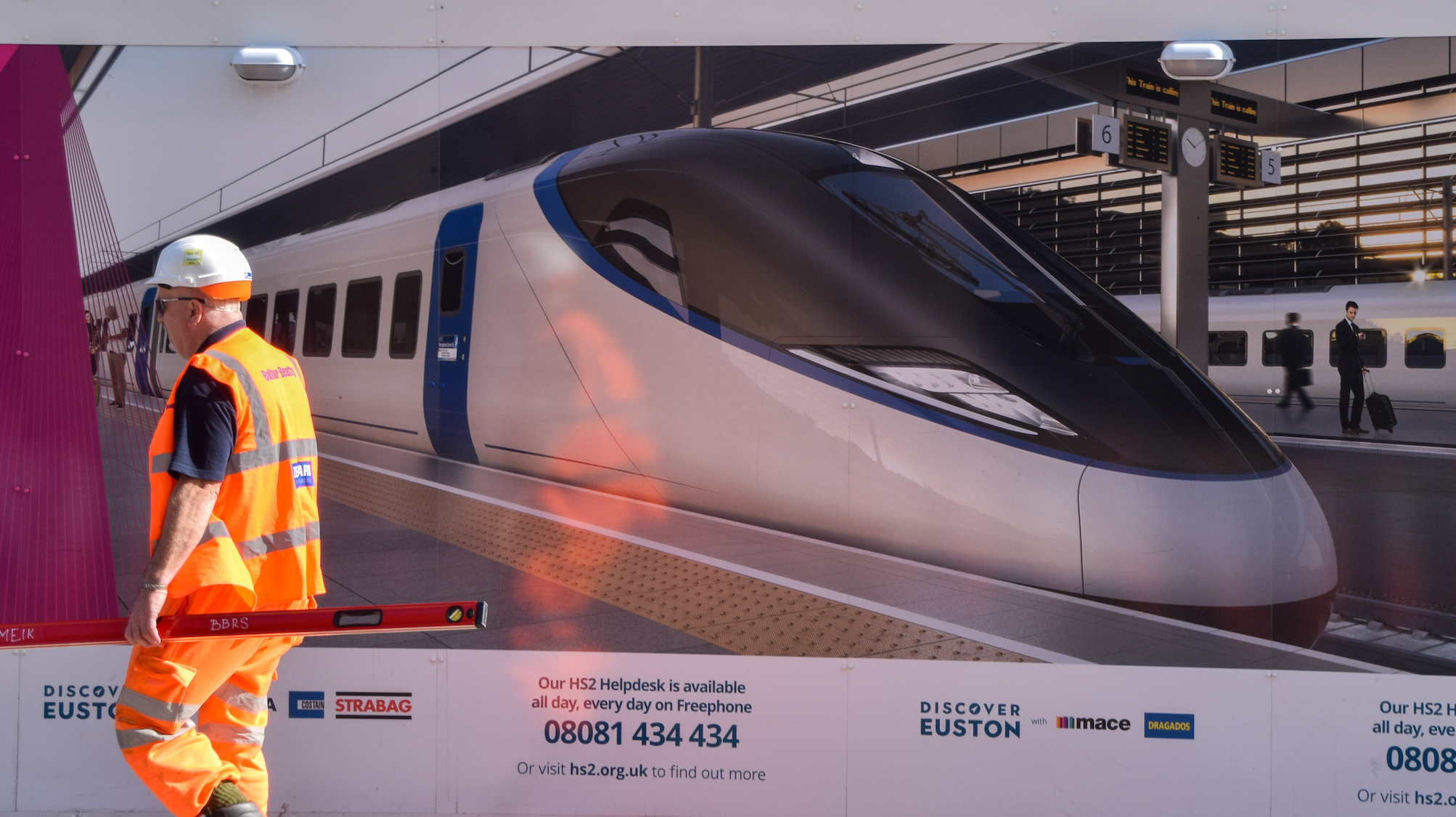 Pros and cons of HS2
Pros and cons of HS2Pros and cons The government has scrapped plans for the northern leg of the high-speed railway after spiralling costs and delays
-
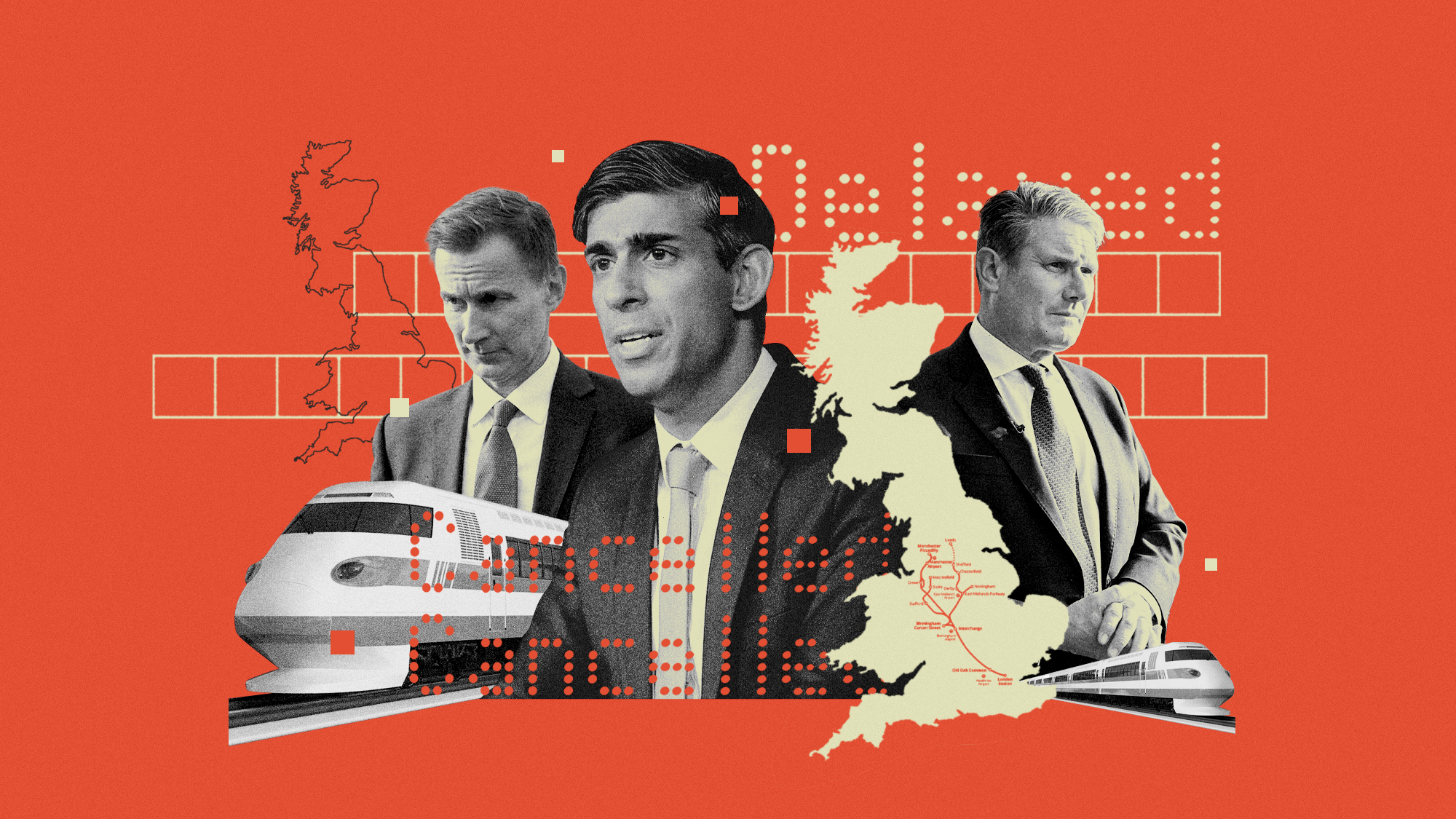 Can HS2 get back on track?
Can HS2 get back on track?Today's Big Question West Midlands mayor offers business solution to keep northern leg but final decision may rest with Labour
-
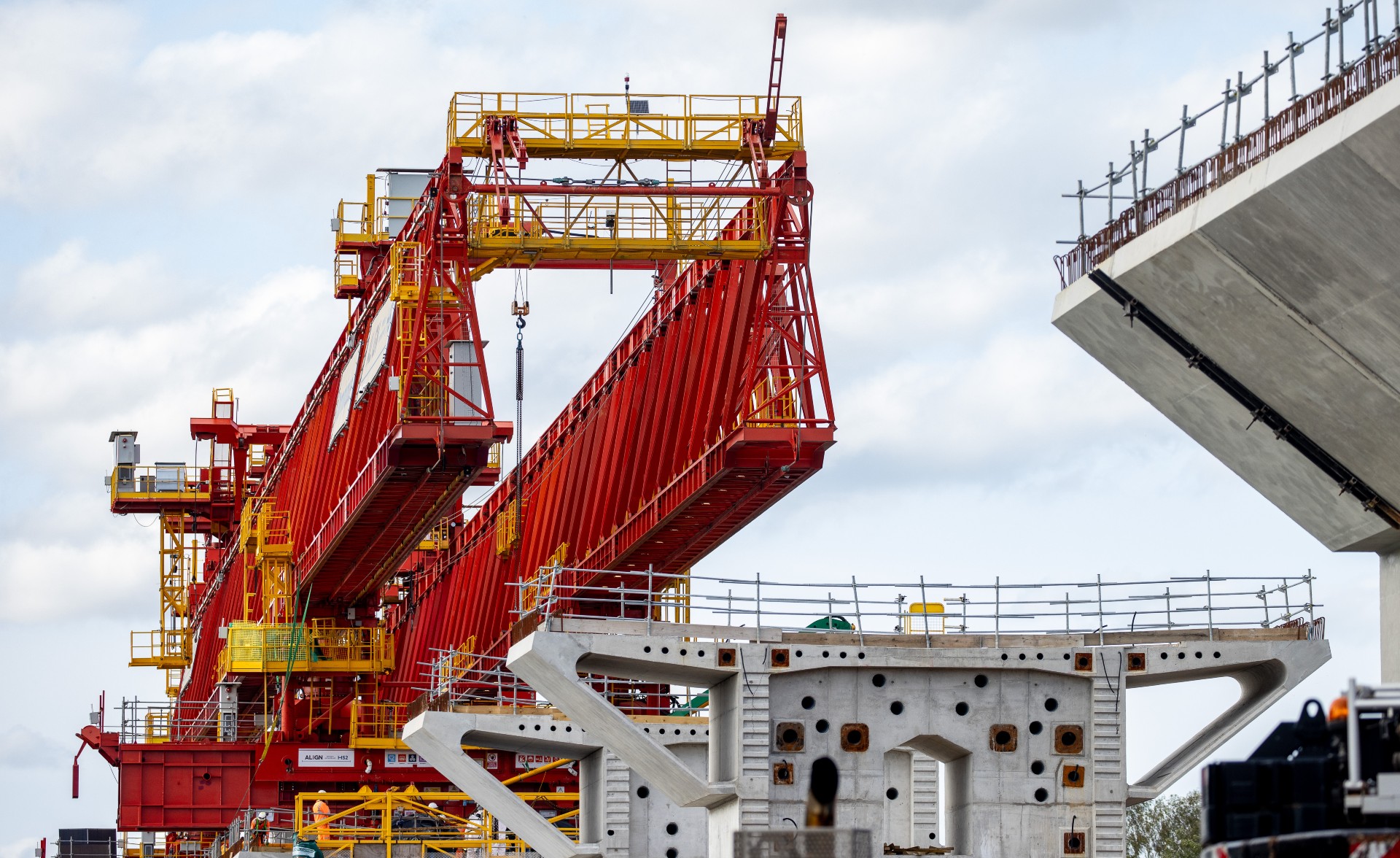 HS2: a runaway train
HS2: a runaway trainTalking Point PM may cut Manchester to Birmingham line of beleaguered rail project due to spiralling costs
-
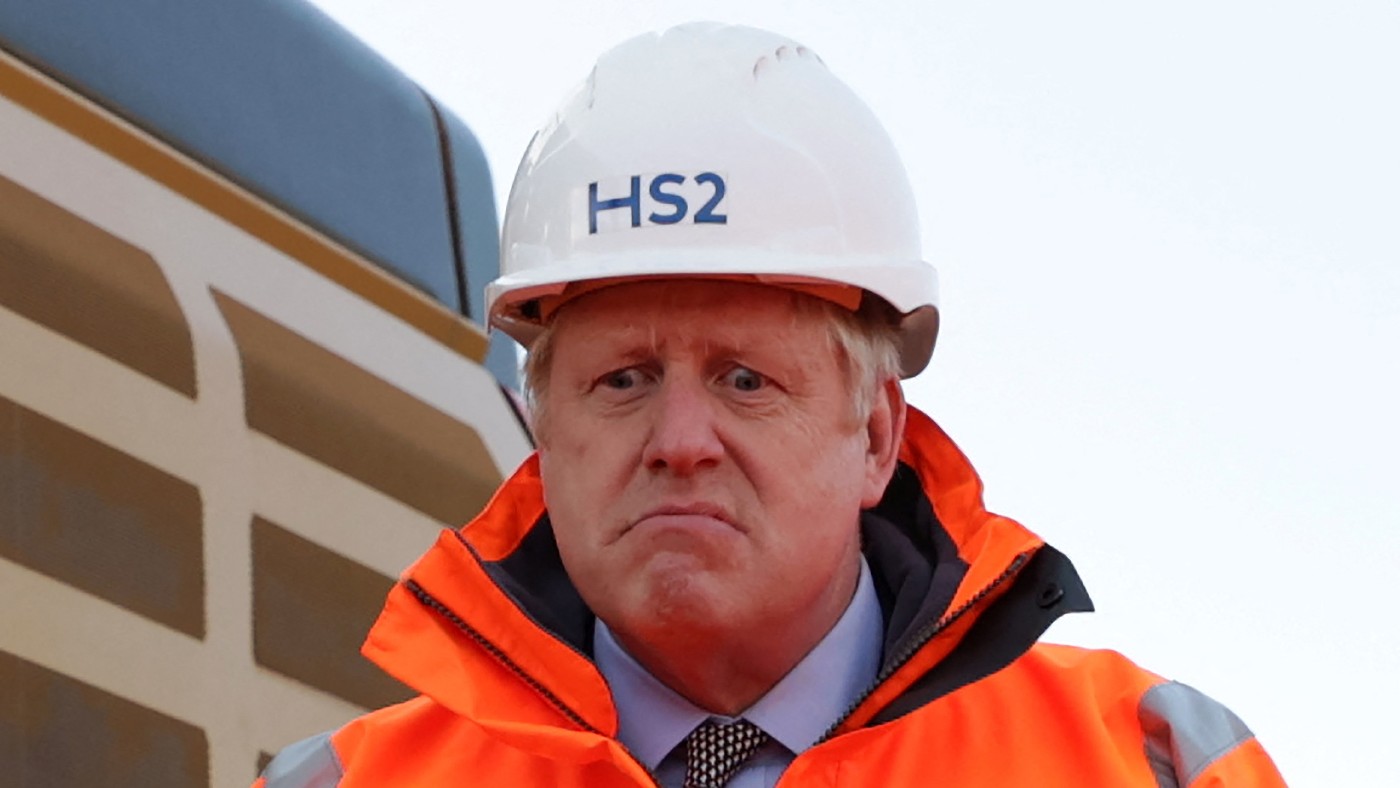 HS2: is this the end of the line?
HS2: is this the end of the line?Talking Point The costs of the track have steadily risen even as the potential gains have diminished say detractors
-
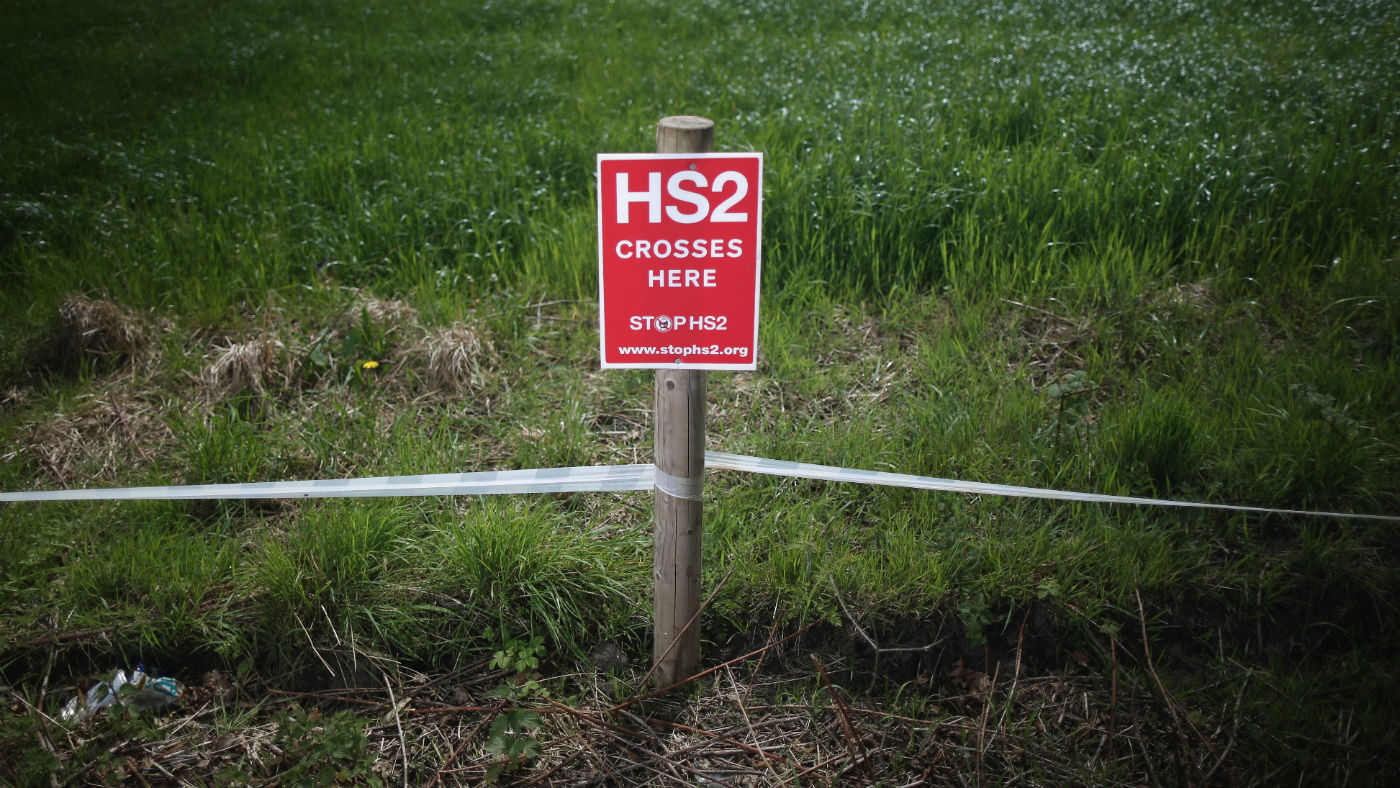 The long wait for HS2
The long wait for HS2feature Europe’s biggest infrastructure project is facing long delays and ever-rising costs
-
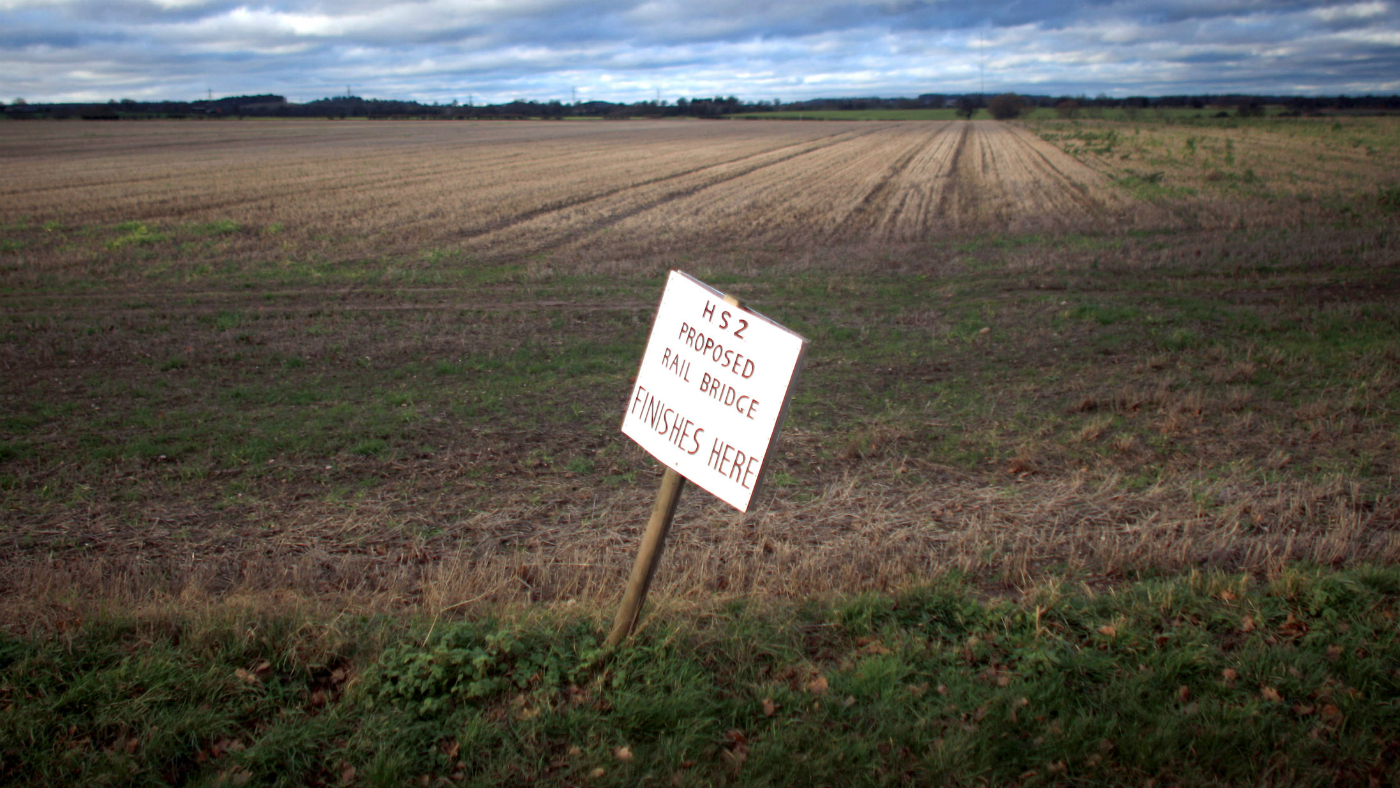 Why HS2 construction is going ahead despite coronavirus lockdown
Why HS2 construction is going ahead despite coronavirus lockdownIn Depth Government decision for contracted firms to begin work on rail line blasted as ‘tone-deaf’
-
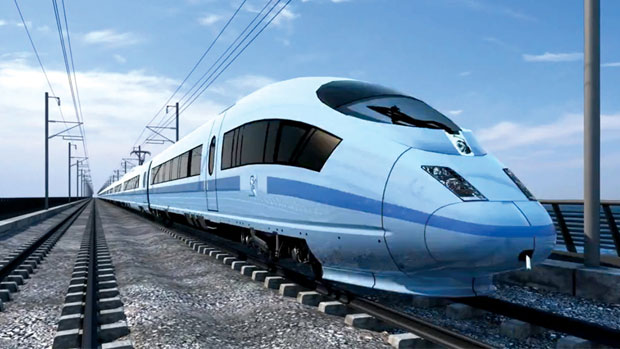 Boris Johnson to give HS2 the go-ahead
Boris Johnson to give HS2 the go-aheadSpeed Read Prime minister will also announce new funding for bus and cycle links
-
 Report blames Tories for late and over-budget HS2
Report blames Tories for late and over-budget HS2Speed Read There are fears that controversial scheme's costs could top £106bn